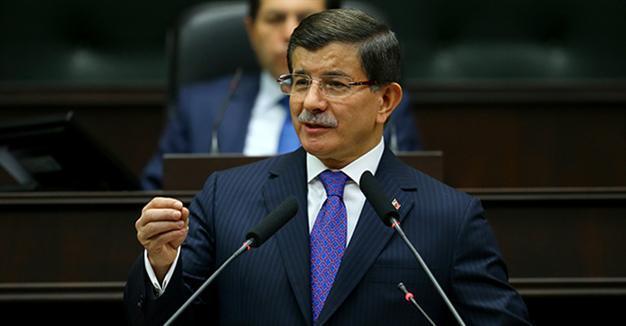Ball in parliament’s court on new constitution: Turkish PM
ANKARA

In this Jan. 5, 2016, file photo, Prime Minister Ahmet Davutoğlu speaks during a Justice and Development Party (AKP) parliamentary group meeting. AA Photo
The ruling Justice and Development Party (AKP) and two other opposition parties have reached a consensus on a number of key issues necessary to produce a new constitution and now parliament is responsible for moving the process forward, Prime Minister Ahmet Davutoğlu stated on Dec. 6.“I think six months will be enough [to write a new constitution] when the current acquis on the matter is also considered,” Davutoğlu told press members.
“A new constitution was a priority among our election pledges,” he said after meeting with Parliament Speaker İsmail Kahraman earlier in the day.
Davutoğlu said the parliament speaker would now be inviting the opposition parties, including the Peoples’ Democratic Party (HDP), to found commissions to conduct work for a new charter.
The current number of seats of the AKP does not allow it to produce a new constitution on its own and so the text should be a product of all parties in parliament, he recalled.
The Davutoğlu-Kahraman meeting comes after the prime minister’s discussions with heads of the Republican People’s Party (CHP) and the Nationalist Movement Party (MHP). He had canceled a meeting with the HDP following statements on “autonomy” by HDP co-chair Selahattin Demirtaş.
Davutoğlu recalled that an agreement was struck with the CHP on “changing the Sept. 12 coup judiciary,” changing the internal regulations of parliament to make it more effective and transparent, and continuing reforms for Turkey’s EU accession bid, including visa liberalization.
A similar consensus was reached with the MHP, he added.
As expected, all three opposition parties expressed their objection to the adoption of a presidential system and proposed instead to correct malfunctioning and weaker parts of the existing parliamentary system.
The commission was planned to be composed of members from all four parties equally, like similar previous commissions, but uncertainty continues over whether it will have to take decisions unanimously or by a simple majority vote.
















